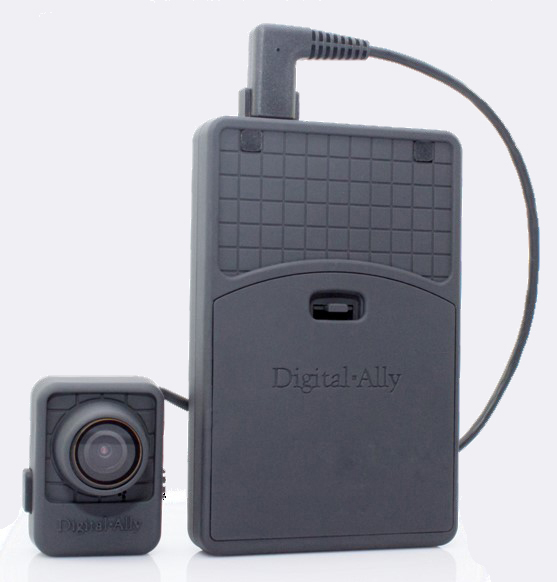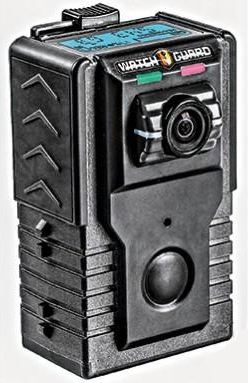Body Cams: Three Iowa Officials Speak Out
Police officer body cameras use in the field isn’t a new concept. However, the call for officials to utilize these products has increased exponentially due to the number of incidents over the last few years involving police. But emphasis on increased usage hasn’t come from concerned citizens alone: In 2015, members of a task force created by President Obama requested increased body cameras use among law enforcement officials.
But these body cameras cost money, which many departments don’t have. In addition, they need to deal with storage, tagging, and data-retrieval issues attorneys and other individuals request via the Freedom of Information Act. To sort this out, we spoke with three Iowa law enforcement officials to see how they deal with day-to-day body camera operations as well as the successes and challenges they encounter.
The numbers
 “Late spring, early summer 2013 is when we first got body cameras,” says Sargent Nicholas Lennie of the Story County Sheriff’s Office.
“Late spring, early summer 2013 is when we first got body cameras,” says Sargent Nicholas Lennie of the Story County Sheriff’s Office.
A total of 26 Panasonic cameras are in inventory. According to Lennie, patrol officers use 20 while others are in reserve. Like other body cam brands, they can activate their Panasonics manually or can set them to turn on automatically when they turn patrol vehicle on lights and release gun triggers.
For those in some departments, the body cameras they choose are different than the in-car dash cameras in their vehicles. For instance, members of the Marshalltown police force, covering a city population of 29,000, utilize Digital Ally for their body cams and WatchGuards in their cars.
“It was a three-year process to get to this point,” says Mike Tupper, Marshalltown Police Chief.
Marshalltown officers began utilizing body cams full-time starting in mid-November 2016. Tupper says they spent a year selecting their preferred model and two years in testing. Today, Marshalltown has 38 body cameras available to anyone who works uniformed patrol. Many were obtained through a $40,000 gift community efforts raised.
For Dave Ness of the Des Moines Police Department, the camera choice for officers was between WatchGuard and Panasonic. WatchGuard won for both their body and in-car cams.
“The nice thing about their product is it allowed the integration,” says Ness.


When officers activate their body cams, their in-car cameras start up as well. The Des Moines department has 300 active units assigned to practically anyone in uniform and on patrol. Detectives and administrative staff members share the other units.
Storage solutions and dilemmas
“The cameras are around $800 each — and that’s the cheap part,” says Tupper.
During the first 30 days of full camera use in Marshalltown, Tupper says they accumulated nearly one terabyte of data.
“And that’s the expensive part of this project,” Tupper adds.
 Members of all three Iowa departments profiled store video downloads on servers within their own departments or in off-site server farms. The best way for them to mitigate storage issues was to set policies on which and when videos could be removed. For instance, according to Ness, the average Des Moines storage rate ranges between 30 days for incidental issues to indefinite for higher profile crimes such as homicides.
Members of all three Iowa departments profiled store video downloads on servers within their own departments or in off-site server farms. The best way for them to mitigate storage issues was to set policies on which and when videos could be removed. For instance, according to Ness, the average Des Moines storage rate ranges between 30 days for incidental issues to indefinite for higher profile crimes such as homicides.
“We kind of have a buffet model when it comes to storage,” says Tupper.
The minimum is 180 days. Tupper adds that Marshalltown personnel keep videos for extended periods if they’re tagged for evidence or until issues are resolved. This includes everything from ticket payments to resolutions in court proceedings.
For those in Story County, with a population of 96,000, storage doesn’t seem to be an issue.
“We’re storing everything in-house,” says Lennie, “and our retention policy is two years.”
Like the other departments, those in Story County can store videos for longer periods due to additional circumstances.
Policies and reactions
“Generally, in our video recording policy, we don’t show citizens the video,” says Lennie.
However, during court cases or with a legal party requests, department members transfer video after review.
As far as telling people officers are recording them, “There’s nothing in the policy to tell them we are actively recording,” says Lennie.
Marshalltown officers operate similarly.
“We consider the footage to be an investigative record,” says Tupper.
Should an individual request a video, it goes to Tupper’s desk so he can determine whether he can release it to a public representative. The same policy stands for Des Moines law enforcement: If images are not part of an ongoing investigation or protected under other state exclusions, the department members release the video.
There are some exceptions in recording and releasing videos. For all three departments, cameras are normally turned off in sexual crime situations. According to Ness, Des Moines officers can also deactivate their cameras during non-confrontational situations or if they’re speaking to confidential informants.
Reactions within the departments and from community members have been positive, according to all three representatives.
“They have proven invaluable to the officers who are facing complaints and the supervisors who are handling the complaints,” says Ness.
He says Des Moines officers are now reluctant to go out on patrol without working body cams.
“I think it’s a powerful tool,” says Lennie.
He adds that Story County department supervisors need to be sensitive to who is requesting videos and when they’re released.
If there has been any negative feedback, Tupper says it comes from the media because they want continual access to the videos. He says Marshalltown community members have been very positive about cameras — to the point the department received public funding for more units. He expects additional public monies to come through to increase the number of body cameras in his department to 50.
[cta]Are you looking for a cost-effective solution to your radio communications and technology challenges? Call RACOM experts at 800-722-6643.[/cta]
